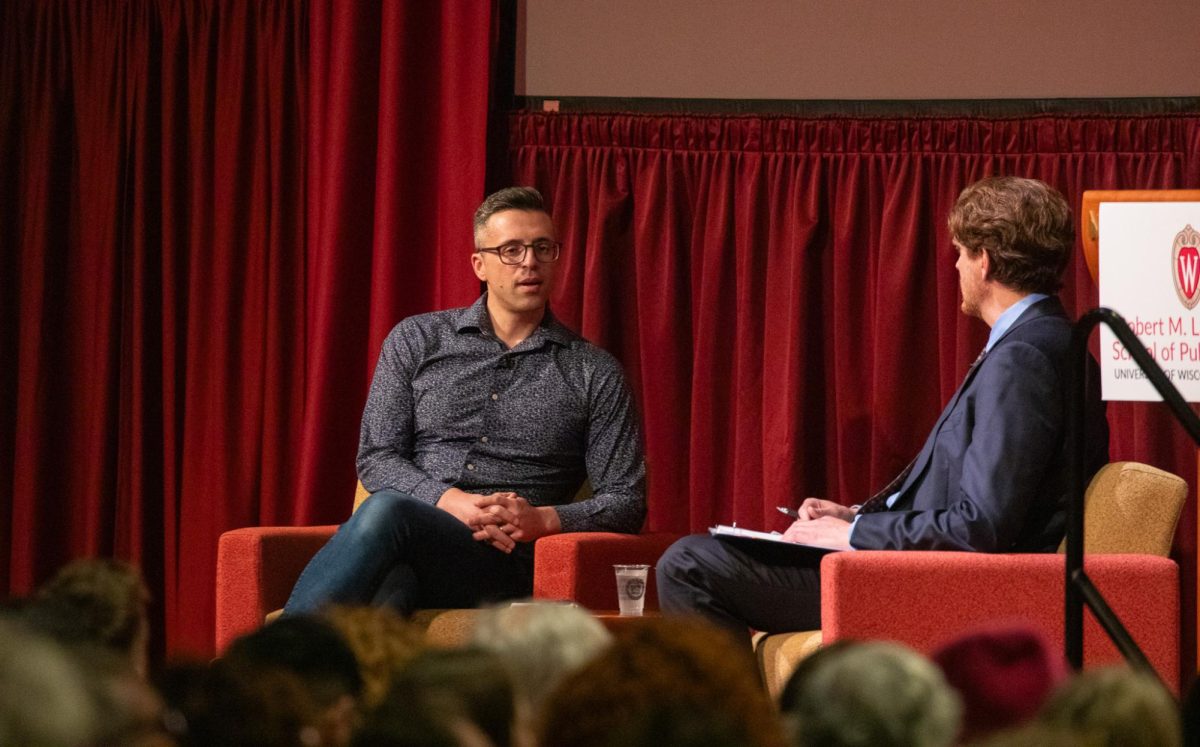The U.S. experiences the widest ideological divides when compared to the U.K., France and Germany, according to a study conducted by Pew Research Center in 2021. The study found the views of American conservatives stand out when compared to European counterparts regarding aspects of national identity.
Specifically, American conservatives are at least 15 percentage points more likely to view being Christian is necessary to maintaining a national identity, according to Pew Research. Additionally, 32% of American conservatives believe one must be born in the U.S. to have an American identity while only 24% of French and German, and 15% of British conservatives hold that belief.
American liberals, however, maintain around the same opinion as their European counterparts when asked about national identity.
This divide has the potential to harm U.S. culture and community because it contributes to a highly polarized society.
Polarization has been on the rise in both the U.S. and Western Europe since 1980, according to the Carnegie Endowment for International Peace. In Western Europe, polarization peaked in recent years, returning to around the level it had been in 1950. But, the U.S. has far surpassed its 1950 level with a large spike occurring from around 2000.
Potential reasoning for the disparity between the U.S. and its western counterparts includes shifts in government styles the nations have experienced.
European countries’ increase in polarization revolved around the balance of governing power between challengers and mainstream parties. This is directly in contrast with the U.S., where polarization is directly linked to the increased ideological extremism that is often a prerequisite to claim association with a certain party, according to Political Research Exchange.
In Europe, the increase in polarization seen since around 1980 has revolved around shifts in the balance of governing power between challengers and mainstream parties, not major ideological shifts within the parties.
But, due to the dominance of party belonging in American politics, affective polarization has become almost inescapable in the U.S. Affective polarization is defined as a strong emotional and moral dislike of members of another party and is rooted in individuals’ false beliefs about the other party’s political beliefs, according to the Carnegie Endowment for International Peace.
The U.S. has grown in its level of affective polarization more than Western Europe. It has also grown in France, but to a weaker extent and it has decreased in the U.K. and Germany in the period of 1980 to 2020.
This increase of affective polarization in the U.S. is in part due to the concept of stacked and sorted identities, which is not as prevalent in other nations. This asserts that in the U.S., party identity is neatly sorted into two groups which extend into society, according to the Greater Good Magazine.
This creates neighborhoods or organizations where all members of a political in-group must agree on certain issues to the point where they develop a distrust and dislike of anyone who might disagree. It is an extremely damaging process as it makes Americans less trusting of each other and potentially less likely to associate with or help those who are different than them.
Furthermore, polarization is not only damaging to relationships between members of different political parties, but can also transform dynamics within groups for the worse, according to the Greater Good Center. This is also known as the psychological concept of “group polarization,” which describes the tendency for individuals to become more extreme in their original beliefs when participating in or associating with a group of likeminded people.
This is dangerous because it moves Americans further from cooperation with and empathy for the collective. In other words, this polarization allows political identity to take the important place of a strong community.
Ideological divides are also deeply influential in the functioning of government. Intense polarization, specifically on the right, often manifests as a diminished trust in institutions, legislative disorder, threats to democracy and even violence, according to Brookings. We have already seen this democratic backsliding in events such as the Jan. 6 insurrection. Even less extreme political moments such as filibusters can lead to a slowdown of government function.
Polarization has also influenced the American political system as some embrace the extreme narratives causing dangerous political and social consequences. Regarding the rise of the “alt-right” or “far-right” in the U.S., movement from a fringe group to a prominent voice in mainstream politics can be partly owed to the Republican Party’s ability to maintain a voter base even as their platform moved to the extreme, according to the Center for Strategic and International Studies.
In contrast, left-wing extremism has not followed the same trajectory in the U.S. because liberal politicians have instead opted to counter conservative movements with a more centrist ideology.
On the other end of this spectrum, many Americans are dissatisfied with the political system and have begun to disengage with it due to this division. According to Pew Research Center, these Americans often feel politics is omnipresent in a harmful manner. This drives dissatisfaction with either party — a perspective that isn’t given space in our two-party system. As of 2022, Americans had the highest level of unfavorable views of both parties in decades at 27%, according to Pew Research Center.
This points to a widespread desire for more choices and changes to the two party system. These individuals do not feel their beliefs are voiced, and our current society does not give them hope for representation. This is likely a reason why why extremism is less strong in Europe — more political parties provide a choice for a variety of representation and inclusion.
Thus, with polarization threatening inefficiency and violence upon our democracy, Americans must recognize the importance of challenging stereotypes without sacrificing their values. This can be done through civil conversation with members of a different party, participating in diverse communities and recognizing when conversation within one’s own party takes on a tone of hatred towards individuals rather than ideological debate.
Additionally, becoming involved in organizations and volunteering is an important way to experience different points of view while also strengthening community bonds. If individuals fail to care about this issue, American democratic institutions and safety from all forms of political violence including racial and other identity based violence will be at risk.



